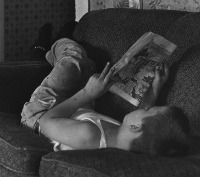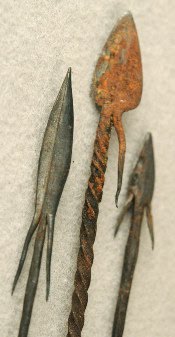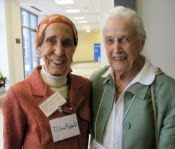In the early 1990s Ginny Daley, then director of the Sallie Bingham Center for Women’s History and Culture, was convinced that Duke should acquire Dorothy Allison’s papers. “I saw her as the quintessential Southern writer,” Daley wrote recently. “Her personal papers and literary works fit well with Duke’s collections of Southern literature and women’s culture, while bringing fresh perspectives on queer culture and truth-telling to the mix.” Through campus visits and other seed-planting efforts, Ginny Daley introduced Ms. Allison to the possibility of Duke as the permanent home for her collection.
 |
| Photo by Brett Hall. |
Now, after a nearly twenty year period of considering this momentous decision, Dorothy Allison, author of Bastard Out of Carolina and other works and renowned activist in the LGBTQ community, has selected the RBMSCL to be the repository for her papers. Bingham Center and literary curatorial staff collaborated on the initial acquisition of nearly 60 boxes of Allison’s papers, including drafts of her writings, extensive correspondence and research files, personal journals documenting her life and creative process, and more. For Allison, a South Carolina native now living in California, it’s a relief to have the papers at the RBMSCL: “All I know is that now I feel that all that . . . I saved is going to be safe and of use. Since we are entering high summer here with 90 degree temperatures and high risk of fire, I can also stop worrying that a wildfire might sweep through the redwoods and erase all that history. Safe and of use is infinitely preferable.”
The papers will be a rich resource for those interested in Allison’s life and work, as well as for researchers exploring the development of LGBT and Southern literatures, lesbian communities and families, and the history of American sexuality, among many other topics. Materials will be added to the collection as Allison continues to write and publish (a new book of short stories and a novel coming soon!).
A preliminary finding aid for the collection is now available here. In the coming months staff will review, process, and revise the finding aid for the collection to make it available for research. Researchers interested in using the papers should contact the Bingham Center staff to discuss their availability.
Post contributed by Will Hansen, Assistant Curator of Collections.












